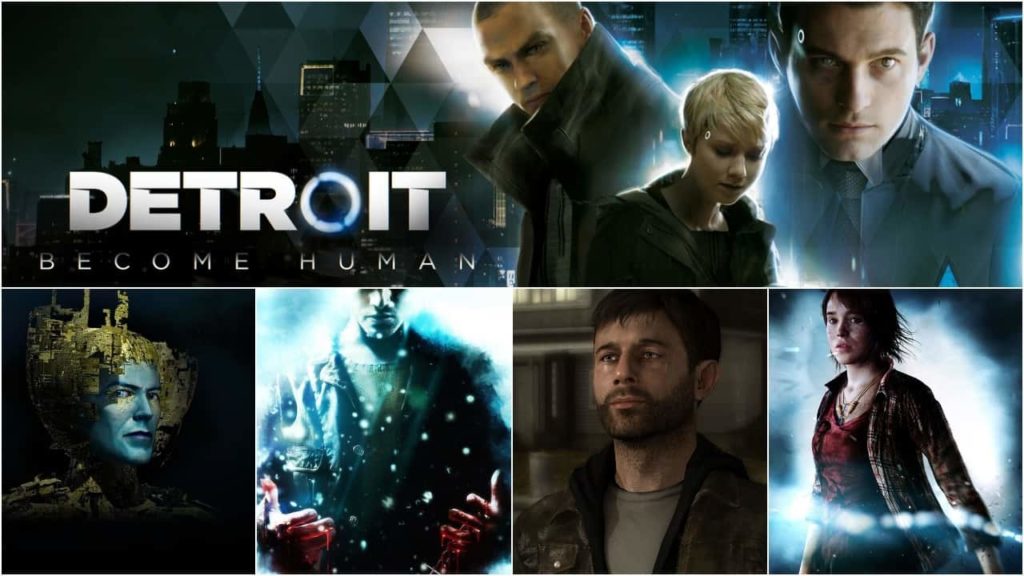
In my previous analysis essays, I mentioned that video games are unique storytelling platforms because they offer the audience to experience an interactive story by controlling the actions of the protagonist or the characters in the story. However, sometimes interactive storytelling in video games sounds delusional. Yes, we are controlling the characters, choosing dialogues for them, and completing their tasks…but to what extent does a player has an impact on the characters’ journey and fate? In the end, we merely follow the story of a writer. Finishing the levels and missions leads to the intended ending designed by the author of the story, not by ourselves. Then, what’s the point of choice-making? In some particular cases, there are choice mechanisms like Silent Hill games have multiple endings depending on the decisions of players. These are classified as good, bad, and comic endings. Despite this feature of the Silent Hill series, it feels unsatisfactory and like I said illusional. Is there a game that breaks this fakeness for the course of video games? Thankfully, yes! Let’s meet the gaming giant called Quantic Dream. In this essay, I will analyze four different games which are made by Quantic Dream: “Fahrenheit: Indigo Child Prophecy, Heavy Rain, Beyond: Two Souls, and Detroit: Become Human”. Before starting to examine each game on the list separately, a brief introduction of the company is needed.
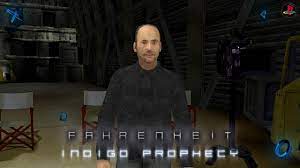
According to the official website, Quantic Dream is founded by David Cage who is both founder and main author in 1997 based in Paris and Montreal. David Cage’s vision was to add cinematic elements and realistic into the video game franchise and enhance the factor of choice in their video games. The company prefers to use real-time actors in their video games such as Ellen Paige and William Dafoe. Furthermore, their animations are developed the 3D real-time animation for giving a sense of cinematic notion to the audience. Now, how did they change and improve choice-making in video games? In the beginning, they understand that they must understand the real meaning behind the choice. The choice is not always about life and death moments like “Save this man or let him die”. An ordinary person can choose different things in their daily life such as drinking coffee, playing basketball, or taking the bus to return home. These are choices we mostly make in our life, but in video games, we cannot do such things. In other words, the decisions are limited. For instance, in an FPS game (First Person Shooter), you can just follow the settled path and kill the enemies that come across. The only choice you make is to change the weapon you have. However, in one of the games, David Cage designed you just sit there in your apartment, taking bills and watching Tv before the level begins. Why is it important, does this have to be important? Maybe yes, maybe no. But we should admit that it gives a sense of freedom more than any game does. After the production of Quantic Dream, other studios try to copy and develop their formula. If we love projects like Life is Strange, Walking Dead and Until Dawn, we shouldn’t ignore the influence of Quantic Dream because they are like the father of this video game genre.
Before jumping into the games, there is one thing I should also talk about one of the great decisions of Quantic Dream. David Cage was obsessed with idea that one of the major choices has physical requirements and sometimes people do not choose an option since it requires physical action. They are tired or lazy to do it. David Cage wanted to put physical hardships in his games. Therefore, he needs to work with the correct console or platform. PC was so restrained from reflecting the physical movements of the players, so he had a deal with PlayStation to develop games. What are those physical actions? I will explain it by giving examples from his four video games.
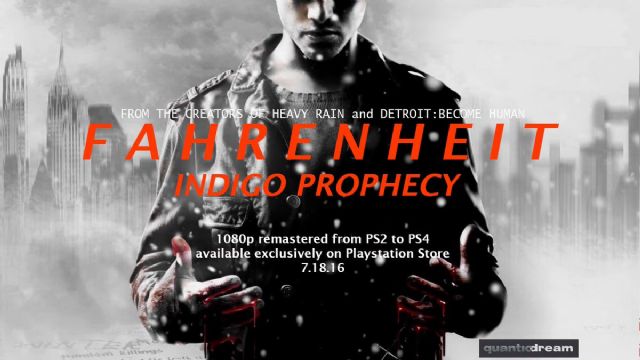
Fahrenheit was released in 2005 for PS2 platforms. It was a massive game for that era since players felt like they can do what they want in the game. However, it was an exaggeration, first of all, it wasn’t an opened world game. No games which were made by Quantic Dream were open-world games. Anyway, because of the plot and gameplay, it became a cult classic for PS2 players and you can still buy the remastered version for PS4 and PC today. The plot is consisting of a man named Lucas Kane who murders an innocent man because he is under the possession of an ancient immortal cult. He suffers from this guilt and tries to understand what’s going on with the help of the other controllable characters Carla Valenti and Tyler Miles whose mission is to arrest Lucas Kane. It’s hard to define which genre this game belongs to. For me, this is a sci-fi horror as it contains mystical powers giving you Matrix vibes, angels attacking players and AI attempts to take over the world but it also has a detective genre and some viewers say this is action-adventure. The graphics are not good, but not disturbing for a 2005 game. Every level has its own choice and interaction section. In the first level where Lucas kills an innocent man in the toilet of a dining hall. The audience understands that someone is controlling Lucas by using dark magic (Yeah, there is magic as well) He gets panicky after taking back his consciousness and the game introduces one of its core elements I love about this game: the mental health bar. In real life too, we should keep our mental health at the top to continue our life. This game also warns players to select their interactions and choice carefully otherwise your character’s mental health will be reduced and the game will be over. In the toilet section, the game teaches how the player’s actions are important for the rest of the game. The player can choose to hide the body and shreds of evidence before getting out of the toilet which increases the mental health bar or immediately gets out and find yourself coming across with the waitress and you should move instantly. Hiding the evidence, and the body requires the players to move basic human movements using the left analog stick. Sometimes players should fast to complete that action. Moreover, in action sequences, players are obligated to use two stick analogs to survive them. Hard physicals are done by L1/R1 buttons. After finishing interactions in the toilet, you get out and leave the dining hall. You should do that before the police go to the toilet but before that, it’s up to you to pay the bill for your order, talk with the police, get out from the main door or backside…Three different characters have different places, personalities, and levels. Hence, their interactions differ from one another based on their mode and mental health bar. I acknowledge that this game has some flaws in storytelling since it’s complicated and messy. In the mind of David Cage, Fahrenheit shouldn’t be one game. It needs to have division to explore every aspect of the game more smoothly and freely. He couldn’t convince his executives because his vision was too massive for that time. “Life is Strange” did this method and they witnessed how beautiful that story was in 2015. My advice is to play this game no matter how it’s messy and hilarious. Its melancholic dark atmosphere, loveable moments, and unique game mechanics save the game’s potential. A small notice I am eager to give, the composer of this game is Angelo Badalamenti who is a composer for David Lynch movies and his work is outstanding. I will put the link at the end of the essay.
The second project Quantic Dream worked on was “Heavy Rain”. Back in 2010, Heavy Rain was considered the revolution in the gaming industry because of the idea behind the production of the game. David Cage suggests that there shouldn’t be a “game over” section in video games. The death of the characters shouldn’t be the end of the story. Rather than achieving the intended ending, he offered players to be killed in the video game and move onto another level in the game. Your decisions in the game whether they are good or bad will determine your path in the story. I think that Heavy Rain is an upgrade to Fahrenheit in the terms of storytelling and gameplay. First, the story is very cinematic and less messy compared to Fahrenheit. Furthermore, it is the only game that Quantic Dream has released as a non-science fiction game. A father who lost his son in a car accident called Ethan Mars tries to find his second son Shaun at the hands of the infamous Origami Killer. In other words, this game belongs to the thriller and detective genre. The themes in the story are also well-designed and written. Mistakes, traumas, redemption…The atmosphere in the game is built on those themes. When the players pass each chapter, the game becomes much darker and melancholic. However, players are not restricted to controlling one character. The life of four characters in the game is under the responsibility of the players. Every character has a different personality and motivation. A detective seeks to find the mystery behind Origami Killer, a special agent who helps the police department for solving the case, and finally a lonely woman who wants to start a new chapter in her life by accidentally meeting with Ethan Mars…Be aware of every movement of each character, a surprise will be waiting for you 😊 Latter, the gameplay mechanics are enhanced as well. Now, it requires more physical movement in real time to finish an action in the game. For instance, Ethan has to shave his beard. You need to move your DualShock console to the right side and left side slowly. If you move it a little fast, you will hurt Jason. Some action forces you to push the button rapidly or simultaneously. Quick times events are essential in tense situations, especially in action sequences. Sometimes it is really difficult to pass action sequences in Fahrenheit, but in Heavy Rain, it’s not so challenging. The challenging part of this game is making the right choice. Lastly, the mental health system has been removed in this game and other games of Quantic Dream. It was a good touch for me but probably some people couldn’t handle seeing the game over the scene because the character in Fahrenheit chooses the wrong tarot cards which makes her lose 40 health points…
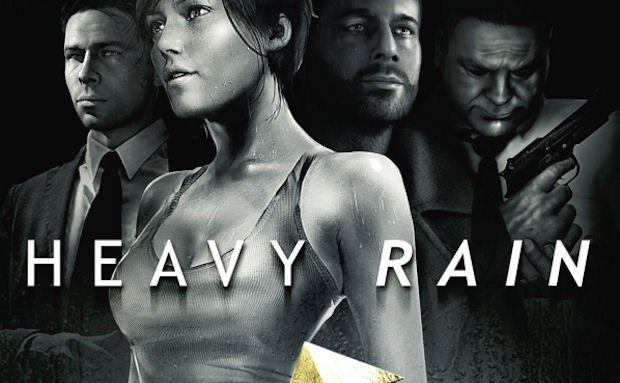
I talked about the good things about Heavy Rain but it has flaws too like every other video game title. The dialogues feel unnatural and cheesy. Some cinematics and animations are not distinct, further, some of them seem to be done poorly. (I still couldn’t understand how Jason could die in Heavy Rain.) Acting is not high quality even for a video game in 2010. The reason why the dialogues sound itchy that because Quantic Dream is a French company and many employees’ native language is French. Attempting to write stories in a foreign language rather than your native language could cause some awkward conservations and cultural conflicts within the story. That’s why Quantic Dream made a huge step by making a contract with Ellen Paige (Elliot Paige) and William Dafoe for the third game as the two main characters. Due to this decision, acting in the game has been improved and dialogues feel more natural than ever. They probably had a chance to assist two Hollywood stars if the writings of dialogues must be checked. Beyond: Two Souls is a sci-fi action-adventure game that tells the story of Jodie and Aiden. Jodie is a girl who has supernatural and two souls as the title suggests. Aiden is the soul we control for solving the problems Jodie comes across with. I like playing as Aiden since you can do anything without limits. The only limitation you have when you play as Aiden, you cannot choose how to harm or affect people. You have just certain moves to complete. Although there are some noticeable improvements in-game mechanics and storytelling, two enormous flaws prevent the game to be a cult classic like previous games. The first one is related to removing the ability to die in this game. You cannot be killed in the game even intentionally. So, many action scenes and movements feel pointless and boring. The second one is the choice of how the story continues in the game. Yeah, I can comprehend David Cage experimented by releasing this game as puzzle storytelling/fiction. Puzzle storytelling is the story in that events do not occur in chronological order. The problem in this game, the order of events is so random and unconnectable. Because of that criticism, the game has been re-released with an option that players are allowed to choose between playing the chronological version and the intended version.
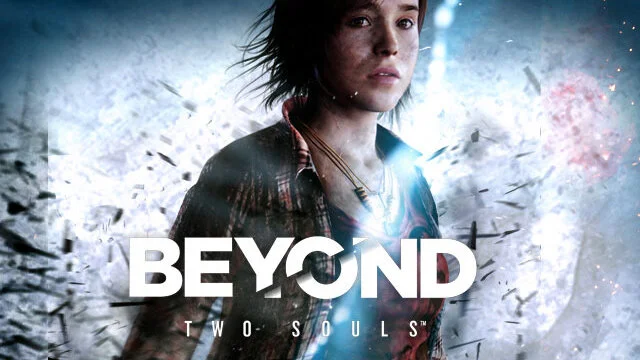
The last game I will analyze is the one Quantic Dream has nailed it. I told you about the flaws that players didn’t like in the video games of David Cage: Cheesy and horrible dialogues, lots of plot holes, trying to achieve so many things with a single game, wrong choice for how the events should proceed, bad acting and animations…David Cage and his team learned from their mistakes and solved them by creating the game called: “Detroit: Become Human” and released in 2018. Detroit: Become Human is a sci-fi game that is heavily inspired by the works of Philip K.Dick who is the author of “Blade Runner”. The plot has similarities: There is a new tech world and most of the workers are robots. In other words, AIs are the ones considered as lower class in the game. People don’t trust and are afraid of them. Players control three different AI systems. Three characters have their motives and backgrounds. One of them is a private detective close to the character called Norman in Heavy Rain. There are some crimes against robots he investigates and tries to break the system within itself. The main character of the story is Markus the caretaker robot. His story arc leads the story to a humanitarian theme and players’ choice plays a huge role in this theme. The game questions the truth about being someone and being a human. All the choices players select rises another question on this philosophical question. Compare to other games, the graphics and animations are impressive. The gameplay is alike to others but more challenging since the team offers thousands of various options players may want to choose and there are multiple endings. The performance of the actors is excellent as well. The script storyline has improved too. The story focus on one theme and a particular genre. Plot holes are taken care of by the team and dialogues are written professionally. In the end, we should celebrate David Cage for never giving up on making great games and following his dreams.
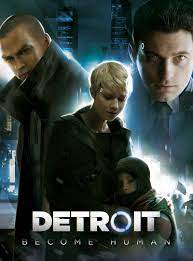
However, some players criticize David Cage’s works for being bad video games. I accept that previous works of Quantic Dream are made by a passionate amateur man. Furthermore, these types of games are not meant for everyone, but we should also admit that we heard about those games even if they are the worst games in the world. There is a quote from Pirates of the Caribbean which summarize what I meant. James Norrington tells Jack that maybe he is the worst pirate he has ever heard. Jack responds to him as if at least he heard him. Being heard by anyone can be considered some sort of success, right? Anyway, the other proof I have to show Quantic Dream is a successful video game company is the news which shows the company gets the rights to make a Star Wars game for the next-gen consoles. I am excited to see the outcome of this work.
Farewell…
Y.O.K
Note: I will upload the links for those who want to see the gameplay in these games.